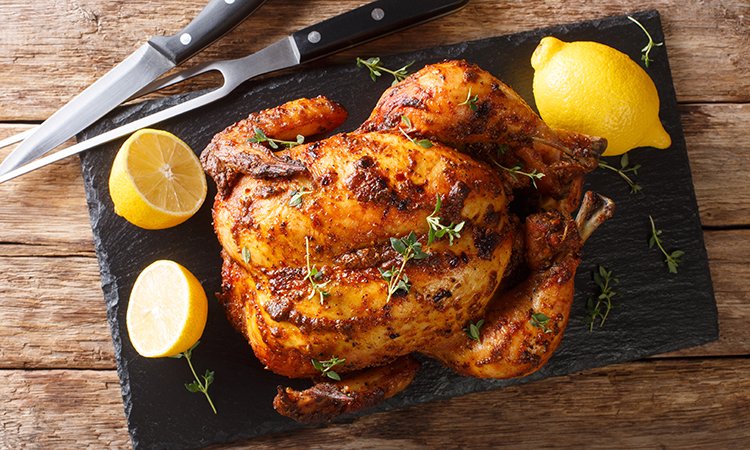Researchers at the University of Exeter suggest that the „yuck factor” could be used to reduce meat consumption, which is viewed by many as unhealthy and unsustainable.

Study participants were shown pictures of things like fried chicken and bacon
Some meat eaters feel disgusted with meat, so a new study. University of Exeter scientists showed food images to more than 700 people, including omnivores (who eat meat and other foods), flexitarians (who try to eat less meat) and vegetarians.
About seven percent of meat eaters (15 percent of flexitarians and three percent of omnivores) reacted “quite disgustedly” to images of meat dishes commonly eaten in the UK, such as fried chicken and bacon.
As a group, omnivores rated meat pictures about twice as disgusting on average as pictures of high-carb foods like bread, chips, and rice.
Based on the results, the researchers say that using the „yuck factor” may be more effective than relying on willpower when trying to eat less meat.
„We were surprised that so many people are spoiled by meat – even people who eat meat all the time,” said Elisa Becker of the University of Exeter.
“Our results do not explain why these people eat meat, but it is possible that habits, family and cultural traditions play a role.
“Meat consumption is increasingly viewed as unsustainable, unhealthy and unethical, and many people want to eat less meat.
„If you’re trying to cut down on your meat intake, sheer willpower may not be enough – but using the ‘yuck factor’ could be the way to go.”
The 711 participants in the study – 402 omnivores, 203 flexitarians and 106 vegetarians – each completed a survey and performed a rid-response task (measuring instinctive reactions) to test their degree of „meat disgust”.
„Lust for meat” was also measured. About 75 percent of omnivores – and more than 20 percent of vegetarians – showed a fairly strong predilection for meat.
In order to be classified as “quite strong” meat disgust, the participants had to rate six meat pictures on a sliding scale from disgust closer to “very much” than “not at all” and also show signs of meat disgust on the rid-answer task.
Among flexitarians – the only group who tried to reduce their meat intake – meat disgust was a better predictor than self-control (measured in a separate questionnaire) for a reduction in meat consumption.
Meat disgust was also associated with decreased intake over the next six months.
„We hope this information can help us develop new interventions that people can use to reduce their meat intake,” said Professor Natalia Lawrence of the University of Exeter.
“Not everyone wants to cut their meat consumption – but for those who do, we are working on computer tasks that could help them harness the power of disgust in fun ways.
„It is important to note that our study does not identify a cause, so more research is needed to determine whether meat disgust causes people to eat less meat, or whether avoidance of meat leads to the development or expression of these negative emotional responses enables. „
„It’s interesting to note that almost all of us experience meat disgust from time to time – for example, when we see unfamiliar meat or dishes made from parts of animals that we don’t normally eat, such as squirrel meat or beef heart,” added Becker .
„Humans may have developed a certain level of meat disgust because eating rotten meat can be much more dangerous than eating a carrot that is a little off.”
